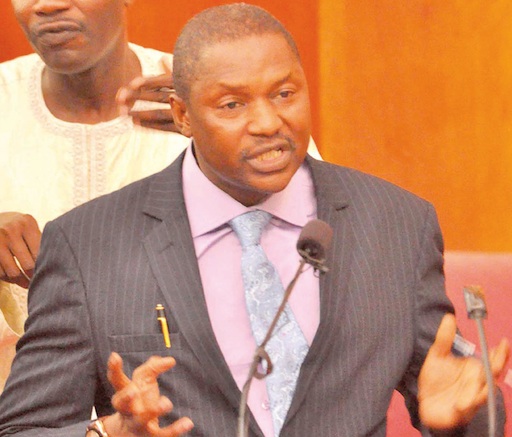Some civil society organisations have asked President Muhammadu Buhari to investigate the Attorney-General of the Federation (AGF) and Minister of Justice, Mr. Abubakar Malami, over “14 high-profile corruption cases”.
In a letter sent to the president during the weekend, the CSOs listed “financial fraud” and “influence peddling” among the allegations levelled against the AGF.
The letter was signed by the Chairman, the Civil Society Network Against Corruption (CSNAC), a coalition of 150 CSOs, Olanrewaju Suraju; Chairman, Centre for Anti-Corruption and Open Leadership (CACOL), Debo Adeniran, and Ezenwa Nwagwu of Say No Campaign.
The CSOs said the immediate option before the AGF is to resign and give way for full inquiry into the allegations against him.
“It has to be now or never. There are very strong allegations of corruption against Mr. Abubakar Malami with clear evidence. President Buhari should act now,” the coalition said.
“We have listed these corruption cases after painstaking compilation of high-profile corruption cases involving the country’s No One law officer. The president must act without delay.
“We are perturbed by these reports considering the revered position occupied by Malami, being the number one law officer of the country. Some of the allegations as conveyed in the media reports go to the root of breakdown of law and order and total disregard for the rule of law.
“These allegations serve as a slap in the face to your Excellency’s administration foremost goal of ridding the Nation of corruption. These allegations are totally opposite the core objectives of your administration and international perception of the country.”
The coalition further stated that top on the list is the alleged auctioning of sea vessels holding crude oil seized by the federal government.
“The AGF also authorised the sale of these vessels by companies under EFCC prosecution for similar offence of illegal bunkering and this action was admitted by the AGF through his media aide pleading presumption of innocence on the part of the accused, in the case being prosecuted by the Federal Government through EFCC.”



